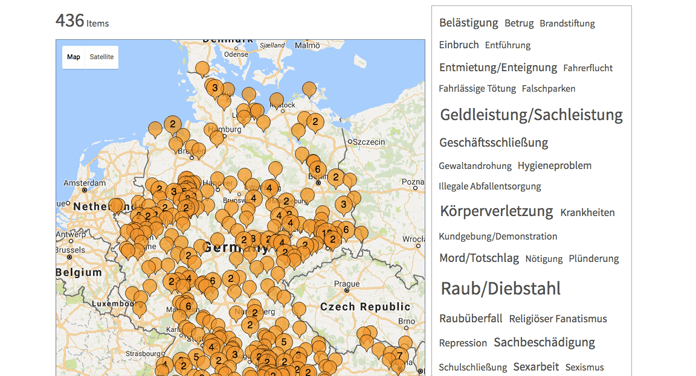How often do you fact-check news stories? The experts writing this stuff are supposed to know what they’re talking about, right?
Well it turns out there are some groups out there that are posting fake news to sway public opinion – especially when it comes to sensitive subjects such as politics, welfare and, especially in Germany, refugees.

A fine for fake news
With social media engrained thoroughly in our social fabric, it’s incredibly easy for anyone to post an article, give it a title based on their own personal agenda and circulate it. Those reading it may also take the author’s words at face value, with no intention of fact checking to ensure the information is accurate.
Recently, the German government has announced they will enforce a fine for social media platforms that allow fake news to proliferate through their users. Facebook and Google are prime examples.
Fake news to push a political agenda
The German government has also announced they’re proposing to initiate a “Center of Defense Against Disinformation”, especially due to the upcoming parliamentary elections. The idea comes amidst the notion that fake news may have influenced the US presidential elections in 2016.
During the lead up to voting day in the U.S. fake news articles were frequently circulated on both Google and Facebook. They included unverified and/or false information made up to suit the partisan propaganda. These stories created a huge buzz on social media and were shared in huge numbers. Many readers made no effort to ensure the stories were indeed correct. Most of the articles were in favor of the Republican candidate Donald Trump, including incorrect accusations of Democratic candidate Hillary Clinton.
Germany is hoping to prevent a similar situation in the upcoming Bundestag elections. In addition to fining social media platforms that allow these stories to fester, Germany has proposed a law to ban the production and distribution of fake news stories entirely.
One German project has been fighting fake news for nearly a year
German project Hoaxmap has been in the fight against fake news since February. Karolin Schwarz and the other co-founder initiated the project to dispel rumors and false stories about refugees and migrants. They developed an interactive map to display the location of the rumor and provide links to reliable sources to debunk these stories. Since the launch, they’ve uncovered more than 400 false stories and accusations.

How do you know if what you’re reading is a hoax?
Especially for people who aren’t familiar with social media or online research, determining if a story is true or false may prove to be a challenge. Instead of taking each article at face value, see if there is a verifiable source listed in the article. Make sure photos aren’t taken out of context. Check on fact checking websites such as Hoaxmap, ABC News, PolitiFact, Snopes and The Associated Press.









